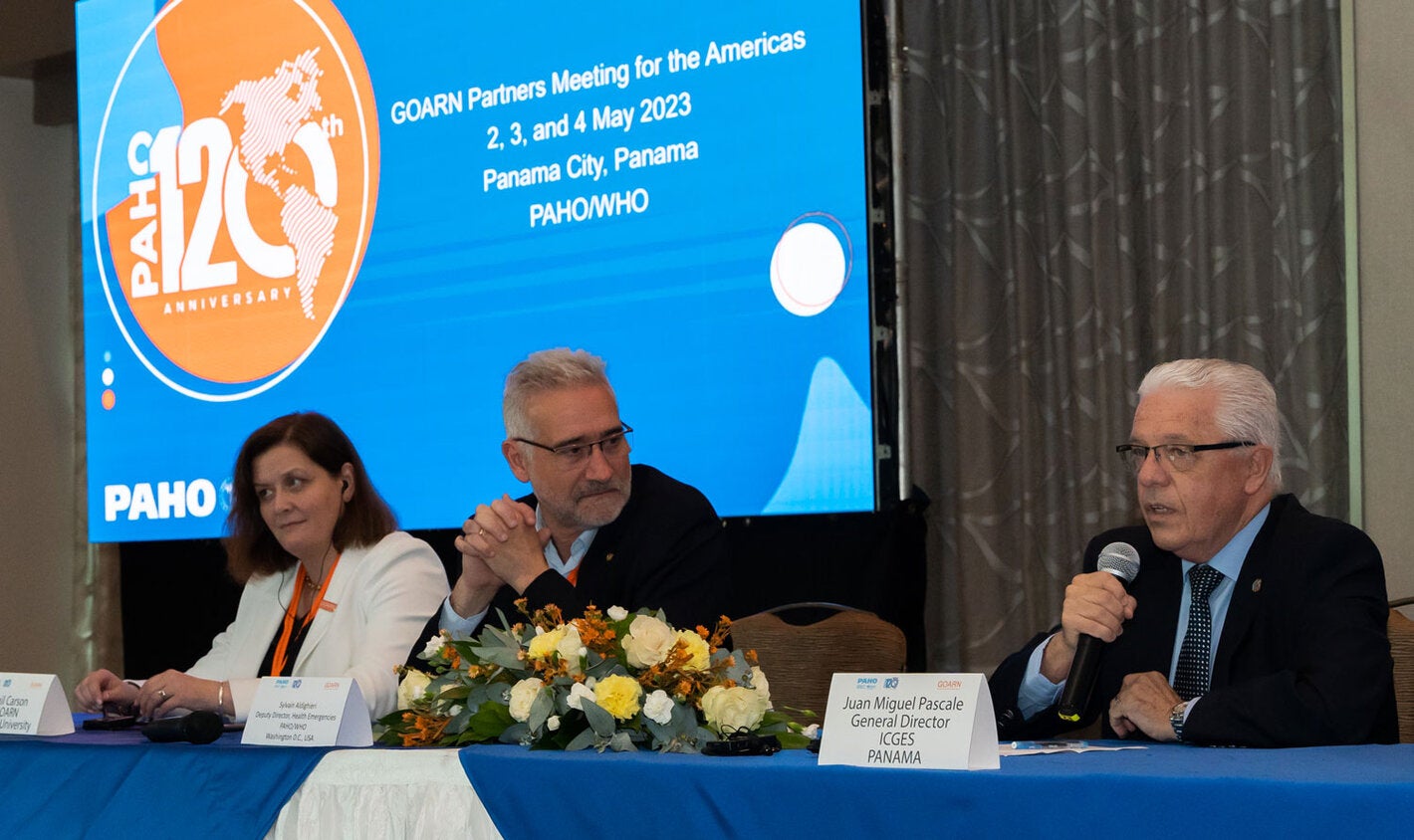
Panama City, Panama, 11 May 2023 (PAHO)- The Pan American Health Organization (PAHO) recently brought together a group of experts to review strides in outbreak management in the Region, along with plans to support countries in infectious disease detection and control in the face of growing epidemics, many originating from animals.
The meeting of the regional group of the Global Outbreak Alert and Response Network (GOARN) brought together more than 60 regional epidemiologists, laboratory experts, clinicians, and veterinarians in Panama from 2-4 May to review lessons learned from the recent COVID-19 pandemic, with a special focus on the concept of One Health.
This approach looks at the interactions between people, animals and the environment, and is particularly important to prevent, predict, detect, and respond to global pandemic threats.
“COVID-19 is the perfect example of why the public health community should strengthen detection and response to emerging infectious diseases at the human-animal-environment interface,” PAHO Assistant Director Marcos Espinal said at the opening of the meeting.
It has been estimated that between 1940 and 2004, on a global level, approximately 60% of known infectious diseases and up to 75% of new or emerging infectious diseases were of zoonotic – or animal to human – origin.
A PAHO review found that, in the last 15 years, 90% of the 1,299 disease events recorded in the Americas have been related to biological agents. Over half of these (52%) were of animal origin, such as influenza, COVID-19, Zika, rabies, and yellow fever.
“The variety and frequency of these reports signal the need to broaden surveillance in the region,” said Sylvain Aldighieri, Deputy Director for Health Emergencies at PAHO.
Outbreaks on watch, he added, include avian influenza H5N1, which has increasingly been detected in wild and domestic birds in the past year, with three human cases reported in the Americas since 2022.
GOARN in the Americas
GOARN was set up by the World Health Organization (WHO) in 2000 to facilitate rapid disease alert and response, and to ensure technical assistance is available to support affected populations. The network is made up of over 270 technical institutions globally.
In the Americas, 38 institutions in 12 countries participate in GOARN. The Gorgas Institute (ICGS) in Panama, the National Institute of Health (INS) in Colombia and the Department of Public Health Emergencies (DEMSP) of the Brazilian Ministry of Health were the latest partners to join in 2023.
Over the past 15 years, the network has mobilized experts to respond to several events in the region, including H1N1 influenza in 2009, cholera in Haiti in 2010 following the earthquake, chikungunya in 2013-14, Zika in 2015-16, viral hemorrhagic fevers in Bolivia in 2012-2019, and yellow fever outbreaks since 2017.
More recently, during the most acute phase of the COVID-19 pandemic in 2020, GOARN facilitated exchanges and training to support infection prevention and control activities, clinical management, case investigation, data collection and laboratory strengthening in 35 countries, among others.
“The unique body of GOARN partners in the Americas is an asset that PAHO/WHO aims to place at the center of any innovative approach for preparedness, surveillance, and response to emerging infectious diseases,” Aldighieri said. “Continued and extended cooperation will remain key to tackle outbreaks in the region and beyond.”
During the recent meeting, experts reviewed the new GOARN strategy launched in early 2023, which calls for collaboration that is diverse and inclusive, equitable in its approach, transparent in its processes and outcomes, and driven by excellence in science, public health and technical expertise.
The participation of experts from the Food and Agriculture Organization (FAO), the World Organization for Animal Health (WOAH), and the World Bank during the meeting supported the GOARN strategy review for the region under the concept of One Health.



